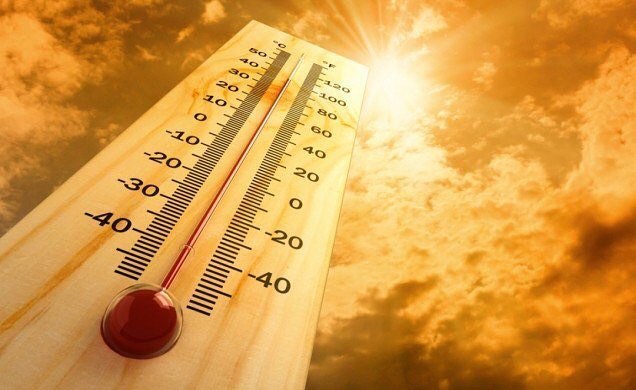Here are four simple tips to lower the temperature without breaking the bank.
- 1. Close your curtains and blinds
- As simple as this strategy sounds, many people neglect or forget to do this. In addition to visible light, sunlight contains ultraviolet (UV) radiation and infrared radiation (or, heat). While heat doesn’t travel through glass very easily, visible light and UV rays do. Once inside, much of their energy is converted to heat. Reducing the light coming inside will reduce this mini-greenhouse effect and keep your home cool with less energy.

- 2. Insulate your home
- Ensuring that your home is well-insulated will not only keep it cool in the warmer months but also warm in the winter. Insufficient insulation results in air leaks and higher energy bills. Fortunately, sealing leaks is fairly inexpensive.
An easy DIY way to check for air leaks around your windows is to wait until there’s some wind outside, then light an incense stick and observe whether air appears to be coming inside. Check around the edges where the glass meets the wood or metal to make sure the glazing putty is sealed. If it’s not, replace it with a good-quality plastic glazing putty.
- 3. Open windows—but not all of them
- If you want to let air in your house, be strategic about it. Let’s return to high school science class for a moment: Remember that hot air rises. If you have more than one level in your house, open only the downstairs windows that are in the shade. Then, open only the upstairs windows on the hot side of the house.
To maximize this effect, experiment with how much to open the windows. Sometimes you only need to open the downstairs windows a few inches. If there is a nice cool breeze outside, open the downstairs windows on the side the wind is hitting and the upstairs windows on the opposite side of the house; this will pull hot air out of your home.
As the day progresses and the air outside starts to warm up (and obviously, when you are running the air conditioner), close the windows. Likewise, if you’re leaving for the day, make sure the windows are shut.
- 4. Use portable fans
- We feel cooler when we’re standing in front of a portable fan because of something called “evaporate cooling.” Fans cause moisture on your skin to evaporate and the evaporation process makes your skin feel cooler.
Try to enhance the effect by positioning fans strategically. One way to do this is to point the fan towards the opposite wall with no large objects in the air’s path. The cooler air will bounce off the wall and mix with warmer air in the room, eventually cooling the room. Using two fans instead of one can also be surprisingly effective; try putting one near a window facing out and the other in a doorway. This essentially creates a wind tunnel.
Keeping cool and saving cash
Air conditioning is a must for any area where Summers are sweltering; but knowing how to maximize your home’s cooling power will lower your monthly energy bills and give your air conditioner a longer lifespan.
We’ve covered a few ways to do this, but there are others; and experimentation is the key. Thinking carefully about how to keep your home cool will pay off in the long term.
If you haven’t given your air conditioner a routine maintenance check in the recent past, contact us, All Air Systems Heating and Cooling, LLC, your local New Jersey HVAC specialist. This is one of the most effective ways to keep your system running at optimal levels.
Here’s to warmer weather ahead and a cooler home!
